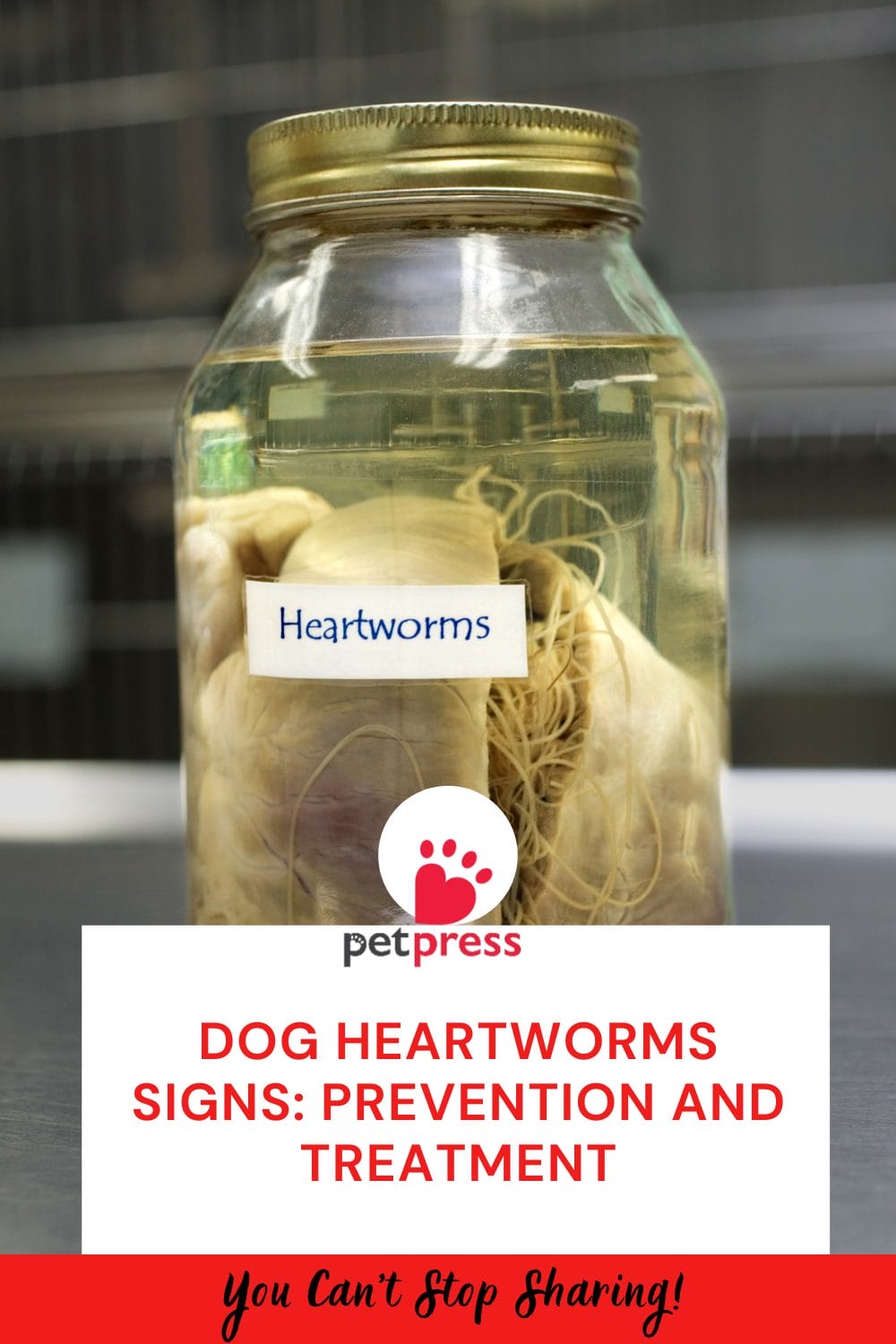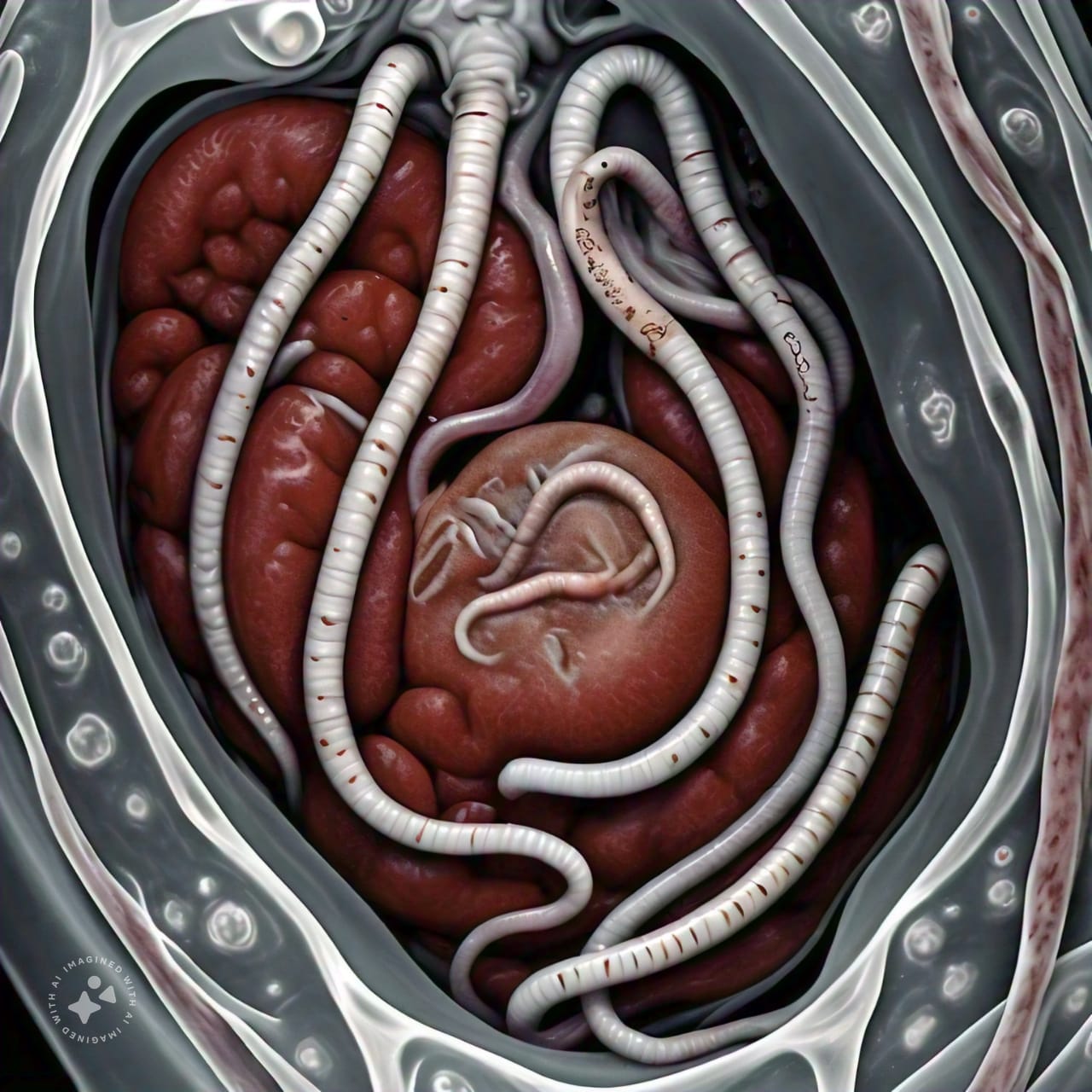
Dog Heartworms Signs are a serious and potentially fatal condition affecting dogs worldwide.
Caused by the parasitic worm Dirofilaria immitis, heartworms can cause severe lung disease, heart failure, and damage to other organs in the body.
Understanding the signs of heartworms in dogs is crucial for early detection and treatment, ultimately saving your furry friend’s life.
History of Heartworms Disease
Heartworm disease has been recognized for over a century. The first documented case of heartworms in a dog dates back to 1847 in the south-eastern United States.
Since then, heartworms have spread across the globe, primarily affecting dogs but also other animals like cats, wolves, and foxes.
Advances in veterinary medicine have led to improved methods for diagnosing and treating heartworms, but the disease remains a significant threat to canine health.
Significance of Recognizing Heartworms Signs

Early detection of heartworm disease is essential because the longer the infection persists, the more damage the worms can cause.
Recognizing the signs of heartworms allows for prompt veterinary intervention, which can significantly improve the chances of successful treatment and recovery.
Preventive measures and regular screenings are critical in areas where heartworms are prevalent.
Types of Dog Heartworms Signs
Heartworm signs in dogs can vary depending on the stage of the disease. Here are the primary signs categorized by their severity:
Mild Signs
- Coughing: A persistent, dry cough is one of the earliest signs of heartworms. This cough may be more noticeable after exercise or physical activity.
- Fatigue: Dogs with early-stage heartworm disease may become easily fatigued and less active than usual.
Moderate Signs
- Lethargy: As the disease progresses, dogs may exhibit significant lethargy and a noticeable decrease in their overall energy levels.
- Weight Loss: Unexplained weight loss can occur as the dog’s body struggles to cope with the parasitic infection.
- Decreased Appetite: A loss of interest in food can be a sign of moderate heartworm disease.
Severe Signs
- Difficulty Breathing: In advanced stages, heartworms can cause severe respiratory distress, making it hard for dogs to breathe.
- Swollen Abdomen: Fluid accumulation in the abdomen, known as ascites, can occur due to heart failure.
- Collapse: In extreme cases, dogs with severe heartworm disease may collapse due to lack of oxygen and heart function.
Causes of Dog Heartworms Signs

An infected mosquito primarily causes heartworm disease by biting.
When a mosquito bites an infected animal, it ingests microscopic heartworm larvae, known as microfilariae.
When the mosquito bites another dog, it transmits these larvae into the dog’s bloodstream.
Over the next six months, the larvae mature into adult heartworms, which can live for five to seven years in the dog’s heart and lungs.
How to Prevent Dog Heartworms Signs
Prevention is the best approach to managing heartworm disease. Here are essential steps to prevent heartworm signs in dogs:
Regular Heartworm Preventives
- Monthly Medications: Administer monthly heartworm preventive medications prescribed by your veterinarian. These medications kill heartworm larvae before they mature into adults.
- Topical Treatments: Some topical treatments also protect against heartworms and other parasites like fleas and ticks.
Annual Testing
- Annual Heartworm Tests: Regular testing is crucial even if your dog is on preventive medication. Annual tests ensure that the preventive measures are working effectively and detect any early infections.
Mosquito Control
- Environmental Control: Reduce mosquito exposure by keeping your home and yard mosquito-free. Use screens on windows and doors, eliminate standing water, and use mosquito repellents safe for dogs.

Conclusion
Heartworm disease poses a severe threat to dogs, but it can be managed effectively with early detection and preventive measures.
Understanding the signs of heartworms in dogs and taking proactive steps to prevent the disease is essential for every dog owner.
Regular veterinary check-ups, preventive medications, and mosquito control can help protect your furry friend from this dangerous condition.
Frequently Asked Questions
Veterinarians typically diagnose heartworms through a blood test. This test detects the presence of heartworm proteins released by adult female heartworms. They may also use additional tests, such as X-rays and ultrasounds, to assess the severity of the infection and its impact on the dog’s heart and lungs.
Yes, heartworm disease can be treated, but the success of treatment depends on the stage of the disease and the overall health of the dog. Treatment involves medications to kill adult heartworms and larvae, and in severe cases, surgical removal of the worms may be necessary. Early detection and prompt treatment improve the chances of a successful recovery.
Heartworm preventive medications are generally safe and well-tolerated by most dogs. However, some dogs may experience mild side effects such as vomiting, diarrhea, or lethargy. It’s essential to follow your veterinarian’s instructions and monitor your dog for any adverse reactions.
Heartworm disease is not typically transmitted to humans. In rare cases, humans can become infected with heartworm larvae, but these larvae do not develop into adult worms and do not cause the same severe health issues as they do in dogs.
If you miss a dose of your dog’s heartworm preventive medication, administer the missed dose as soon as you remember. Then, continue with the regular dosing schedule. Missing a single dose may increase the risk of heartworm infection, so it’s crucial to contact your veterinarian for guidance and possibly schedule a heartworm test to ensure your dog is protected.
By staying informed and proactive, you can ensure the health and well-being of your dog, safeguarding them against the dangers of heartworm disease.
- Dogs Pooping Blood: A 2026 Guide for Concerned Pet Parents - February 23, 2026
- How to Celebrate a Dog’s First Birthday on a Budget: 2026 Guide - February 18, 2026
- Best Shampoo for Sensitive Skin Dog Grooming: 2026 Guide - February 12, 2026


GIPHY App Key not set. Please check settings